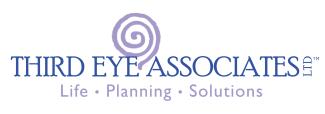Do you have a Budget or Spending Plan?
August 3, 2013
By Beth Jones, RLP®, AIF®, CFT™
Whether you call it budgeting, or a spending plan, it can be a tedious task that we only do when absolutely necessary. If the word budget makes you cringe, call it a spending plan. Having the “black and white” read on your finances gives you power in your quest for financial freedom. It’s time for each of us to take control of our own financial future. There are some things we can do to protect ourselves and get through hard times. One of the most powerful ways to deal with economic fears is to take action.
Why should I budget?
The economic downturn has forced many individuals, regardless of their net worth, to pay greater attention to their bottom line. We need to work a little harder, spend a lot less than we earn, and save a lot more. Our national savings rate is 0.6%, an obvious recipe for the economic tsunami we are living in today. Maybe you’ve experienced a life change and you need to manage your spending, or you need to save for a specific goal, or you simply want to know where your money goes each month—a budget can shed light on your financial situation.
How to create a budget
I recommend keeping it simple, if your system is easy, you will use it. You can access a budget template at Google.com or email me and I’ll send you a simple system I use. The following guidelines will help you get started:
1. Determine how you will track your expenses. You can use a software program, (I like Quicken) a worksheet, a spreadsheet, or even a notebook. How you format your budget will vary depending on how detailed you choose to be. Being consistent in your recordkeeping can save you time later when you go back to analyze your expenses, especially at tax time when you need to prepare for any deductions.
2. Understand essential vs. nonessential spending. Determining whether an expense is essential or nonessential makes it easier to analyze your spending. An essential expense is something that is a fixed expense, as opposed to a want-to-have.
Essentials are things like:
- Mortgage or rent payments
- Car payments
- Insurance premiums
- Utilities
- Groceries
- Health care
Nonessentials include:
- Meals out at restaurants
- Entertainment expenses
- Vacations
And when it comes to the nonessential items, this doesn’t mean that you cannot spend money on entertainment or things you love; the goal is to help you take an objective view of which expenses are necessary and which ones could be considered luxuries. This will come in handy when you start to look for areas where you can potentially save money and allocate funds toward other goals.
3. Track your expenses for 30 days. To gain a true picture of your spending and all of your fixed expenses, it makes sense to track your spending for a full month. Although you might find this a tedious exercise, the truth about your spending habits will be revealed. Knowledge is power.
4. Everything counts. For your budget to be truly effective, you need to log even small incidental purchases. Log quarterly or annual expenses that you might not capture in your regular tracking period
5. Analyze. Once you’ve logged your expenses for the period, categorize items as essential and nonessential. See if you can cut down on some of those items, you deem essentials. Is your morning store-bought coffee on your personal essentials list? Consider making coffee at home for a fraction of the cost. The same goes for dining out—you can eat more meals at home each month to cut spending.
6. Don’t cut items that impact your future. It can be tough to do the right thing when trying to decide between splurging on that dream vacation or continuing to contribute to a retirement account or maintaining adequate insurance coverage. Consider the impact on your future and the future of your loved ones. It usually makes more sense to continue saving and to cut out the nonessential expense, rather than sacrifice your long-term financial health. I know it seems counter intuitive to contribute to your retirement plan when the market is down, but disciplined investors who invest systematically may be rewarded over time as they are purchasing more shares of their investments while the markets are low.
Benefits of budgeting
- Stress relief. Knowing exactly what you spend—and that you have enough to meet your essential expenses—is liberating. You’re less likely to toss and turn at night when you know your finances are in order.
- More cash to put toward other goals. By analyzing your spending habits, you may very well find additional cash to put toward goals that are more important.
- More financially savvy kids. If you have children, one of the greatest gifts you can give them is a sense of financial responsibility. Many parents may dread having to refuse a child’s request for a new pair of sneakers or an iPhone, but showing them that you track spending so you can ensure that all of their needs are addressed through a solid plan will teach a life lesson.
Make a game of it…when you are really committed to a goal, it’s easier to say no to nonessentials. Who knows what personal and financial benefits you’ll derive from budgeting, but it is definitely worth it. If your budget reveals that you need extra assistance in saving toward goals, or inspires you to consider your overall financial plan, you might consider working with a financial professional who practices an integrated approach to financial planning. If you are consumed with fear and anxiety around your money, turn off the TV and get some help. Find a financial therapist.
Third Eye Associates, Ltd disclaimer
This article is provided for general informational purposes only and should not be construed as investment advice. Always consult a qualified Financial Consultant or Planner who can guide you in creating a globally diversified portfolio that provides growth and income with an eye on managing volatility.
Beth Jones, RLP®, AIF®, CFT™ is a Certified Financial Transitionist™, Registered Life Planner, and Financial Consultant with Third Eye Associates, Ltd, a fee-only Registered Investment Adviser located at 38 Spring Lake Road in Red Hook, NY. She can be reached at 845-752-2216 or www.thirdeyeassociates.com.

